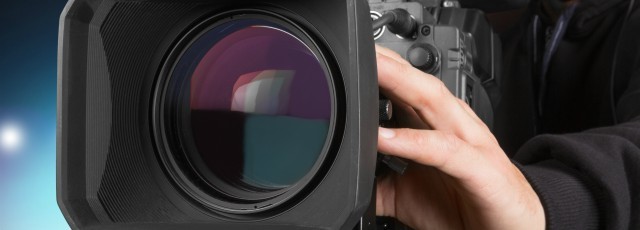5 real-life camera operator interview questions
A Camera Operator is a professional responsible for capturing footage for various productions such as films, television broadcasts, live events, or documentaries. This role demands technical knowledge of camera equipment, a creative eye for composition, and the ability to work under varying conditions.
These camera operator interview questions are directly sourced from real hiring managers and they are ready to use.

Make sure that you are interviewing the best camera operator candidates. Sign up for Workable’s 15-day free trial to hire better, faster.
5 good camera operator interview questions
- What is the difference between aperture, shutter speed, and ISO?
- What do you feel is the most important skill to have as a camera operator?
- Explain a situation where you had to quickly adapt to changes as a video camera operator.
- Tell me about a time you were put in an uncomfortable situation as a camera operator and how did you handle the situation?
- How do you handle stress and pressure as a camera operator?
Here are 5 interview questions with sample answers, based on real hiring managers, to help you identify the best candidates for this role.
1. What is the difference between aperture, shutter speed, and ISO?
This question tests technical knowledge of camera settings.
Sample answer:
“Aperture controls the lens’ diaphragm size, affecting depth of field. Shutter speed determines how long the sensor is exposed to light, impacting motion blur. ISO measures the sensor’s sensitivity to light, affecting image noise.”
2. What do you feel is the most important skill to have as a camera operator?
This question inquires about the candidate’s perspective on key skills.
Sample answer:
“The most important skill is visual storytelling. Understanding how to compose shots and capture scenes that convey the intended emotion or narrative is crucial in camera operation.”
3. Explain a situation where you had to quickly adapt to changes as a video camera operator.
Assesses adaptability and problem-solving in dynamic environments.
Sample answer:
“During a live event, unexpected weather conditions arose. I quickly adapted by adjusting the camera settings for the changing light and repositioning to protect the equipment, ensuring continuous, high-quality coverage.”
4. Tell me about a time you were put in an uncomfortable situation as a camera operator and how did you handle the situation?
Evaluates the ability to handle challenging situations.
Sample answer:
“Once, I had to shoot in a crowded, chaotic environment. I remained calm, communicated effectively with my team, and focused on getting the shots needed while ensuring the equipment and I stayed safe.”
5. How do you handle stress and pressure as a camera operator?
Probes into the candidate’s stress management techniques.
Sample answer:
“I handle stress by staying organized, preparing thoroughly for each shoot, and keeping a clear head. I focus on the task at hand and maintain open communication with my team.”\
What does a good camera operator candidate look like?
An ideal Camera Operator candidate should have a strong technical understanding of camera equipment and the principles of photography and videography.
They must possess a creative eye for composition and storytelling, coupled with the ability to adapt quickly to changing scenarios and solve problems on the fly.
Good candidates are also calm under pressure, able to handle the physical demands of the role, and have excellent communication skills for effective teamwork. Experience with various types of cameras and production environments is a significant plus.
Red flags
Red flags in a Camera Operator candidate include a lack of technical knowledge about camera settings and operations, poor communication skills, and an inability to provide examples of adapting to challenging scenarios.
Signs of discomfort with the physical demands of the job or a lack of a creative approach to visual storytelling are also concerning.
A candidate who is easily overwhelmed by stress or pressure may struggle in this role, which often requires working in high-pressure and dynamic environments.
